
May 28
1863 Civil War: Negro regiment departs for combat:

The 54th Massachusetts Infantry, the most famous [Negro] regiment of the war, leaves Boston for combat in the South. For the first two years of the war, President Abraham Lincoln resisted the use of [Negro] troops despite the pleas of men such as Frederick Douglass, who argued that no one had more to fight for than African Americans. Lincoln finally endorsed, albeit timidly, the introduction of [Negros] for service in the military in the Emancipation Proclamation. On May 22, 1863, the War Department established the Bureau of Colored Troops to recruit and assemble [Negro] regiments. Many [Negros], often freed or escaped slaves, joined the military and found themselves usually under white leadership. Ninety percent of all officers in the United States Colored Troops (USCT) were white.
[For further details, Click here]
1871 The Paris Commune falls:
The last barricade of the Paris Commune falls to the onslaught of the army, and a legion of Parisians fall to the army's firing squads.
On the evening of that bright Sunday when the insurrection finally collapsed, a Sunday when the streets of central Paris were crowded with returning bourgeois, all expressing their satisfaction that the struggle was at last over, the city's walls were placarded with a proclamation emanating from MacMahon:
"Inhabitants of Paris," said he, "the Army of France has come to save you. Paris is delivered. At four o'clock our soldiers carried the last position occupied by the insurgents. Today the struggle is over, order, work, and security will now revive."
[For further details, Click here]
1884 Birth: Eduard Benes: Czech politician:
The son of a peasant, Benes was educated at the universities of Prague, Dijon, and the Sorbonne. He obtained a doctorate in sociology and in 1909 was appointed professor at the Prague Academy of Commerce. In 1915 he escaped from Austria-Hungary to Paris, where he helped T. G. Masaryk to form the Czech National Council.
He was Foreign Minister of the new Czechoslovak state from 1918 to 1935 and represented Czechoslovakia at the Paris Peace Conference from 1918 to 1920. He opposed any revision of the post-World War I settlement.
In the 1920s he tried to build "Little Entente" with alliances between Czechoslovakia and Yugoslavia in 1920 and Czechoslovakia and Romania in 1921.
He developed close ties with both France and the Soviet Union. Benes was a strong supporter of the League of Nations, of which he was six times chairman.
The admission of the Soviet Union to the League in 1934 was a triumph of his diplomacy. The following year Czechoslovakia made a pact of mutual assistance with the USSR.
When Masaryk retired as President in December 1935, Benes succeeded him. In 1938 he resigned and went into exile in the United States following the Munich Agreement.
From 1941 to 1945 Benes was head of the Czech government-in-exile in London. In 1943 he visited Stalin in an attempt to act as mediator between East and West. He returned to Prague as President in March 1945. He tried to keep the presidency above party politics and did not intervene against Communist subversion of the government after 1945.
In February 1948 Klement Gottwald launched a Communist coup in Czechoslovakia. Benes resigned as President on 6 June 1948, refusing to sign Gottwald's Soviet-style constitution. He died three months later.
1892 Birth: Sepp Dietrich: German Waffen-SS general:
Josef "Sepp" Dietrich won a myriad of medals for bravery in World War I. Thereafter, his life continued to be laced with adventure and danger. In the early years of the Weimar Republic, he joined the Freikorps and participated in the bloody overthrow of Munich's municipal Communist regime. He joined the nascent SS in 1928 and his fortunes rose rapidly.
Most importantly, he belonged to Hitler's inner circle of advisors. In that capacity, he accompanied the Führer on all outings and to all engagements, had all kinds of talks with him, and often lunched and dined with the feared warlord. Hitler admired "Sepp" in all ways. Fearless, unswervingly loyal, and as straight as an arrow, Dietrich became one of his "closest and most constant associates." (Kurowsi, 412). Consequently, he worked and lived in the Chancellery, occupying a room in the Führer's suite.
Assigned by Hitler to create the SS Watch Battalion-Berlin, which later became the SS Leibstandarte (Life Guard)-Adolf Hitler, Dietrich was made Chief of the Fuehrer's Security. His SS guards provided a seven-man shooting party during the Night of the Long Knives (June 28-29, 1934) when SA leader Ernst Roehm and his SA comrades were murdered. On July 1, 1934, he was made SS Obergruppenfuehrer, equivalent to a full army general. General von Fritsch came to like Dietrich a great deal and personally instructed him in war strategy as the SS Leibstandarte developed into an elite combat unit.
During World War II
Dietrich and his Leibstandarte participated in the whirlwind campaign against France and distinguished themselves in the drive toward Dunkirk. On July 5, 1940, Hitler personally awarded him the Knight's Cross of the Iron Cross. The Leibstandarte was later beefed up to brigade status when it participated in Hitler's invasions of Yugoslavia and Greece. Dietrich exhibited a warm fatherly attitude toward his troops during the catastrophic 1941-42 winter campaign in Russia and came to know every man under his command by name. As the Wehrmacht fought a losing retreat back across Russia, he managed to save his troops at least seven times from annihilation. Writes Kurowski: "A natural front-line soldier, he knew how to extricate his troops even in the worst of battle situations and redeploy them swiftly for a deadly counter-attack." (Kurowski, 417).
Though an SS soldier to the core, Sepp Dietrich did not hold extremist views and his loyalty to his troops remained paramount. He protected them against SS Chief Heinrich Himmler whom he frequently referred to with barely concealed contempt as "the Reichsheini." He also personally protested to Hitler twice about the shooting of Jews.
Dietrich played an invaluable part in the German recapture of Kharkov and became the 26th German soldier to be awarded the Swords to the Knight's Cross with Oak leaves. In April 1944, he was promoted to SS Oberstgruppenfuehrer, the equivalent of a Colonel-General in the German army. During June 1944, he commanded the SS 1st Panzer Division in the battle of Normandy. He became greatly disillusioned with Hitler's stubborn refusal to sanction an effective retreat to better ground.
The Conspiracy
During the day of July 17, 1944, only hours before being seriously wounded by an RAF fighter attack on his motorcade, Field Marshal Erwin Rommel was busy touring the Western Front in Normandy and meeting with his subordinate front-line commanders. On that occasion he visited Dietrich. When their meeting ended, Rommel asked him one last question: Would the SS commander be prepared to follow orders given by Rommel even if it contradicts those of the Führer. Dietrich is said to have answered: "You, Field Marshal, are my commander-in-chief, and I shall obey only you, whatever the order!" (Kurowski, 418). A confident Rommel returned to his headquarters confiding to his adjutant, Lang, "Dietrich is now on our side." (ibid). But Dietrich was outraged when he heard the news of the July 20th assassination attempt on Hitler, calling it "a cowardly act by the plotters" which had thrown the German military "into a mess." (ibid.).
His Fate
Hitler for his part never lost faith in Sepp Dietrich to whom he entrusted the December 1944 Ardennes offensive, which nearly turned in Germany's favor. Dietrich's last battle was fought in Vienna when his outmanned outgunned and exhausted Panzer force fail to stop the Red Army from taking the city. He surrendered his army to U.S. General George C. Patton on May 8, 1945.
Dietrich was found guilty of complicity in the massacre of U.S. soldiers near Malmedy during the Ardennes offensive, though his alleged responsibility for the deed was never proven. He was sentenced to life on the charge of "offense against customs and ethics of war," but scores of officers, among them Field Marshal Heinz Guderian and General Hans Speidel, came to his defense and his sentence was commuted to 25 years.
He was released in October 1955, but later sentenced by a German court to serve an 18-month prison term on the charge of being accomplice to manslaughter in the June 1934 massacre of RÖhm and the SA. He was released in February 1958.
1894 Völkishness: A tombstone relief depicting an "Aryan" nobleman treading on an unidentifiable beast is found under the cloister flagstones at Heiligenkreuz. Adolf Josef Lanz, now Father Georg, writes his first published work. In it he interprets the tombstone as an allegorical depiction of the eternal struggle between the forces of good and evil. Lanz soon assimilated current racist ideas into a dualist religion, identifying the blue-eyed, blond-haired "Aryans" as the good principle and the various dark races as the evil. (THP)
1911 Births: Various:
Randolph Churchill: In full, Major, the Hon. Randolph Frederick Edward Spencer-Churchill, born in London, only son of Winston Churchill. A journalist in the 1930s, Randolph made three unsuccessful attempts at election to Parliament but finally became the Conservative member for Preston from1940 to 1945. He served as an intelligence officer in the Middle East and Yugoslavia during World War II. After the war, he made three unsuccessful attempts to return to Parliament, between 1945 and 1951. He was the author of several books, including a definitive biography of his father. Randolph Churchill died in 1968 at East Bergholt, in Suffolk.
Fritz Hochwalder: Also known as Fritz Hochwaelder, Austrian playwright. In 1938, Hochwalder escaped Austria and the Nazis by entering Switzerland illegally. He escaped after waiting futilely for an entry visa from any country and in this way his experiences reinforced the Zionist leader Chaim Weizmann's ironic quip that in those days the world was divided into two kinds of countries: countries that want to be rid of Jews and those that refuse to accept them.
1915 World War I: Various: List Regiment: Gefreiter Adolf Hitler's 16 Reserve Infantry Regiment [List Regiment] continues to occupy a position at Fromelles, which is on a level field with water channels, willow trees and willow stalks. In the distance, towards the enemy lines, lies an insignificant wood with barbed wire entanglements. Under the direction of their defense-minded commander, Lieutenant General Gustav Scanzoni von Lichtenfels, the regiment works ceaselessly day and night to further fortify their position at Fromelles while fighting off repeated assaults by the enemy. [For further details, Click here.] German Government's Response to the Sinking of the Lusitania:
If neutral vessels have come to grief through the German submarine war during the past few months by mistake, it is a question of isolated and exceptional cases which are traceable to the misuse of flags by the British Government in connection with carelessness or suspicious actions on the part of the captains of the vessels. In all cases where a neutral vessel through no fault of its own has come to grief through the German submarines or flyers according to the facts as ascertained by the German Government, this Government has expressed its regret at the unfortunate occurrence. 1916 World War I: List Regiment: Gefreiter Adolf Hitler endures trench warfare in Flanders (Artois) with 3 Company, 16 Reserve Infantry Regiment. [For further details, Click here.] 1917 World War I: Various: President Wilson's Proclamation Establishing Conscription:
The power against which we are arrayed has sought to impose its will upon the world by force. To this end it has increased armament until it has changed the face of war. In the sense in which we have been wont to think of armies, there are no armies in this struggle, there are entire nations armed. Thus, the men who remain to till the soil and man the factories are no less a part of the army that is France than the men beneath the battle flags. It must be so with us. It is not an army that we must shape and train for war; it is a nation. [For further details, Click here]
List Regiment: Gefreiter Adolf Hitler's 16th RIR redeploy east of Douai for a period of rest which will extend until June 24. [For further details, Click here.] 1918 World War I: Various: U.S. troops score victory at Cantigny:
In the first sustained American offensive of World War I, an Allied force including a full brigade of nearly 4,000 United States soldiers captures the village of Cantigny, on the Somme River in France, from their German enemy. [For further details, Click here]
List Regiment: Gefreiter Adolf Hitler's 16th RIR is behind the lines for a period of rest that will last until May 30. [For further details, Click here.] 1919 Various:
Voelkishness: Muenchener Beobachter: Sebottendorff moves their offices from the Four Seasons Hotel to the premises occupied by H.G. Grassinger's local branch of the Deutsch-Sozialistische Partei (DSP), another anti-Semitic nationalist group founded in 1918. Henceforth Grassinger is the newspaper's production manager and the paper becomes his party's official organ. (THP)
Voelkishness: Guido von List and his wife leave Austria and travel to Germany, intending to stay with Eberhard von Brockhusen at Langen in Brandenburg. Brockhusen is a devoted List Society member and Grand Master of the loyalist Germanenorden. (THP)
Nazi Party: Swastika:
Friedrich Krohn, a member of the DAP, the Thule Society, and the Germanenorden since 1913, writes a memorandum entitled Is the Swastika Suitable as the Symbol of the National Socialist Party? which proposes the left-handed swastika (i.e. clockwise in common with those used by the Theosophists and Germanenorden) as the symbol of the German DAP.
Krohn evidently preferred the sign in this direction because of its Buddhist interpretation as a talisman of good fortune and health, while its right-handed (anti-clockwise) counterpart symbolized decline and death (most of Guido von List's swastikas, as well as the Thule Society's, were right-handed). Hitler, who was not yet a member of the DAP, later chose the right-handed version (May 20, 1920).
[Note: Even more interesting is Krohn's use of the term National Socialist in the title of his memorandum. At that time, only the Austrian Nazis (DNSAP) are known to have been using this name.] (THP)
1923 Volkishness: Sebottendorff moves to Lugano, Switzerland, where he completes his occult treatise on the Baktashi dervishes and their relationship to alchemists and Rosicrucians. He will remain in Switzerland through 1924. (THP)
1937 Volkswagen is founded:
On this day in 1937, the government of Germany—then under the control of Adolf Hitler of the National Socialist (Nazi) Party—forms a new state-owned automobile company, then known as Gesellschaft zur Vorbereitung des Deutschen Volkswagens mbH. Later that year, it was renamed simply Volkswagenwerk, or "The People's Car Company."
Originally operated by the German Labor Front, a Nazi organization, Volkswagen was headquartered in Wolfsburg, Germany. In addition to his ambitious campaign to build a network of autobahns and limited access highways across Germany, Hitler's pet project was the development and mass production of an affordable yet still speedy vehicle that could sell for less than 1,000 Reichsmarks (about $140 at the time). To provide the design for this "people's car," Hitler called in the Austrian automotive engineer Ferdinand Porsche. In 1938, at a Nazi rally, the Führer declared: "It is for the broad masses that this car has been built. Its purpose is to answer their transportation needs, and it is intended to give them joy." However, soon after the KdF (Kraft-durch-Freude)-Wagen (Strength-Through-Joy car) was displayed for the first time at the Berlin Motor Show in 1939, World War II began, and Volkswagen halted production. After the war ended, with the factory in ruins, the Allies would make Volkswagen the focus of their attempts to resuscitate the German auto industry.
Volkswagen sales in the United States were initially slower than in other parts of the world, due to the car's historic Nazi connections as well as its small size and unusual rounded shape. In 1959, the advertising agency Doyle Dane Bernbach launched a landmark campaign, dubbing the car the "Beetle" and spinning its diminutive size as a distinct advantage to consumers. Over the next several years, VW became the top-selling auto import in the United States. In 1960, the German government sold 60 percent of Volkswagen's stock to the public, effectively denationalizing it. Twelve years later, the Beetle surpassed the longstanding worldwide production record of 15 million vehicles, set by Ford Motor Company's legendary Model T between 1908 and 1927.
With the Beetle's design relatively unchanged since 1935, sales grew sluggish in the early 1970s. VW bounced back with the introduction of sportier models such as the Rabbit and later, the Golf. In 1998, the company began selling the highly touted "New Beetle" while still continuing production of its predecessor. After nearly 70 years and more than 21 million units produced, the last original Beetle rolled off the line in Puebla, Mexico, on July 30, 2003. (History.com)
[What the article does not mention is that the concept of a People's Car, like that of the Swastika, or the 1940 Ardennes push, was not Hitler's original inspiration. In the case of the Volks, he was emulating his fellow racist, Henry Ford and his Model-T. Nor does it mention that few of those who made down-payments received their cars.—Ed.] 1940 World War II: Various:
Belgium surrenders unconditionally:
After 18 days of ceaseless German bombardment, the King of [the Belgians], having asked for an armistice, is given only unconditional surrender as an option. He takes it.
German forces had moved into Belgium on May 10, part of Hitler's initial western offensive. Despite some support by British forces, the Belgians were simply outnumbered and outgunned from the beginning. The first surrender of Belgium territory took place only one day after the invasion, when the defenders of Fort Eben-Emael surrendered.
Disregarding the odds, King Leopold III of Belgium had tried to rally his forces, evoking the Belgian victory during World War I. The Belgian forces fought on, courageously, but were continually overcome by the invaders.
By May 27, the king of Belgium, realizing that his army was depleted and that even retreat was no longer an option, sent an emissary through the German lines to request an armistice, a cease-fire. It was rejected. The Germans demanded unconditional surrender. Belgium's government in exile, stationed in Paris, repudiated the surrender, but to no avail. Belgium had no army left to fight. In the House of Commons, British Prime Minister Winston Churchill defended King Leopold's decision, despite the fact that it made the British troops' position, attempting to evacuate Dunkirk, in northern France, more precarious.
King Leopold refused to flee the country and was taken prisoner by the Nazis during their occupation, and confined to his palace. A Belgian underground army grew up during the occupation; its work including protecting the port of Antwerp, the most important provisioning point for Allied troops on the Continent, from destruction by the Germans. (History.com)
Norway: Norwegian and British forces capture Narvik, the first allied infantry victory in World War II.
Operation Dynamo: the evacuation of the defeated Allied armies from Dunkirk, continues. [See: What Were Adolf Hitler's Major Blunders?]
1942 Various:
Resistance: During a visit to Sweden, Pastor Dietrich Bonhoeffer takes with him peace proposals from a group of German conspirators led by General Hans Oster, Chief of Staff of the Abwehr, and General Ludwig Beck, but they are rejected by the British Foreign Office. (THP)
Reprisals: Czechoslovakia: Nazis kill over 1800 people in retaliation for the assassination of Reinhard Heydrich.
1946 Nuremberg Tribunal: The President: Dr. Sauter, can you indicate in what way you will submit this document has any relevance at all? We have read the document. It does not appear to have any striking relevance. Martin Bormann: In a study in comic futility, Martin Bormann's defense attorney attempts to clarify a salient point:
DR. BERGOLD: Yes, Your Lordship. The circumstances concerning Bormann's death are not very clear. It is very necessary to hear all the available witnesses on this subject because only in this way can one be convinced of the fact, which I am trying to establish that the Defendant Bormann is already dead.
THE PRESIDENT: It does not seem to be a very relevant fact. It is very remotely relevant whether he is dead or whether he is alive. The question is whether he is guilty or innocent.
DR. BERGOLD: Your Lordship, my point of view is that sentence cannot be passed against a dead man. That is not provided for in the Charter. According to the Charter, the Court can only sentence an absent person, but a dead person cannot be included under the term "absent." If the defendant is dead, the Charter does not provide the possibility of continuing proceedings against him. [For further details, Click here.] Fritz Sauckel testifies on his own behalf: Sauckel: I heard a speech of Hitler's. In this speech he said that the German factory worker and the German laborer must make common cause with the German brain worker. The controversies between the proletariat and the middle class must be smoothed out and bridged over by each getting to know and understand the other. Through this a new community of people would grow up, and only such a community, not bound to middle class or proletariat, could overcome the dire needs of those days and the splitting up of the German nation into parties and creeds. This statement took such hold of me and struck me so forcibly, that I dedicated my life to the idea of adjusting what seemed to be almost irreconcilable contrasts. I did that all the more, if I may say so, because I was aware of the fact that there is an inclination to go to extremes in German people, and in the German character generally. I had to examine myself very thoroughly to find the right path for me personally. As I have already said, I had hardly taken any interest in political questions. My good parents, who are no longer alive, brought me up in a strictly Christian but also in a very patriotic way. However, when I went to sea, I lived a sailor's life. I loaded saltpeter in Chile. I did heavy lumber work in Canada, in Quebec. I trimmed coal on the equator, and I sailed around Cape Horn several times. All of this was hard work. [For the rest of Sauckel's first day of testimony, , Click here.] From The Anatomy of the Nuremberg Trials by Telford Taylor: It was plain that Sauckel was much bigger than he looked and much abler than one might conclude on finding his name near the bottom of Dr. Gilberts IQ test. He gave hundreds of public speeches and published articles and a couple of books. He was both the Party and the governmental leader of Thuringia. The eminent Berlin journalist Louis Lochner regarded him as 'one of the toughest of the Old Guard Nazis.' Still, Sauckel was a regional potentate, and if he had remained only the boss of Thuringia there would have been little likelihood of finding him in the dock at Nuremberg. Sauckel was charged on all four Counts of the Indictment, but he had virtually no military or diplomatic connections, and there was literally no basis for conviction under Counts One and Two...Accordingly, the Sauckel case involved exclusively the conduct of his office as Plenipotentiary General for the Allocation of Labor...As a last question, Servatius asked his client 'whether today you consider your activity justified or not.' Sauckel answered: 'From the point of view of the war situation and of German economy, and as I saw and tried to carry out my allocation of labor, I consider it justified.' It was a frank answer, but not likely to promote an acquittal." 1947 Death: August Eigruber:
Immediately after the Anschluss in March 1938, Eigruber became "Gauleiter" of Upper Austria and, in 1940, Reichsstatthalter for Oberdonau, of which Linz was the capital. Eigruber was a particularly enthusiastic Nazi. He was on good terms with Hitler and Bormann and was successful in asserting his ideas about the rebuilding of Linz over the head of the official architect Roderich Fick.
Eigruber also helped establish Mauthausen. He was subsequently charged and convicted for war crimes committed at the camp. He was hanged on May 28, 1947, in the yard of Landsberg prison.
1948 Death: Unity Mitford: British fascist sympathizer:
In 1933, Mitford traveled to Nuremberg, Germany for a rally and met the man she had become obsessed with, Adolf Hitler. She became a member of his entourage and a passionate though naive supporter of National Socialism, along with her sister Diana Mitford, who married the British fascist leader, Sir Oswald Mosley.
When Britain declared war on Germany in September of 1939, a distraught Mitford sent a farewell letter to Hitler and shot herself in the head in the English Garden in Munich. The suicide attempt failed, but she suffered serious brain damage. She was returned to Great Britain via neutral Switzerland, and spent the rest of her life on the island of Inch Kenneth. Doctors had decided it was too dangerous to remove the lodged bullet, and she eventually died of meningitis caused by the cerebral swelling around the bullet. She was 33 years old.
1987 Matthias Rust lands his plane in Red Square:
Matthias Rust, a 19-year-old amateur pilot from West Germany, takes off from Helsinki, Finland, travels through more than 400 miles of Soviet airspace, and lands his small Cessna aircraft in Red Square by the Kremlin. The event proved to be an immense embarrassment to the Soviet government and military. (History.com)
1991 Ethiopian capital falls to rebels:
Addis Ababa, the capital of Ethiopia, falls to forces of the Ethiopian People's Revolutionary Democratic Front (EPRDF), formally ending 17 years of Marxist rule in the East African country.
In 1974, Haile Selassie, the leader of Ethiopia since 1930, was deposed in a military coup. Ethiopia's new rulers set up a Marxist regime, executed thousands of their political opponents, and aligned themselves with the Soviet Union. War with Somalia and severe droughts during the 1980s brought famine to the Ethiopian people, leading to considerable internal strife and independence movements in the regions of Eritrea and Tigre.
[For further details, Click here]
Edited by Levi Bookin (Copy editor) Click to join 3rdReichStudies Disclaimer: This site includes diverse and controversial materials—such as excerpts from the writings of racists and anti-Semites—so that its readers can learn the nature and extent of hate and anti-Semitic discourse. It is our sincere belief that only the informed citizen can prevail over the ignorance of Racialist "thought." Far from approving these writings, this site condemns racism in all of its forms and manifestations. 
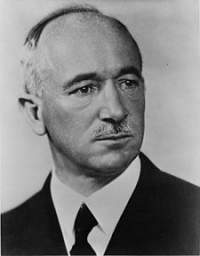

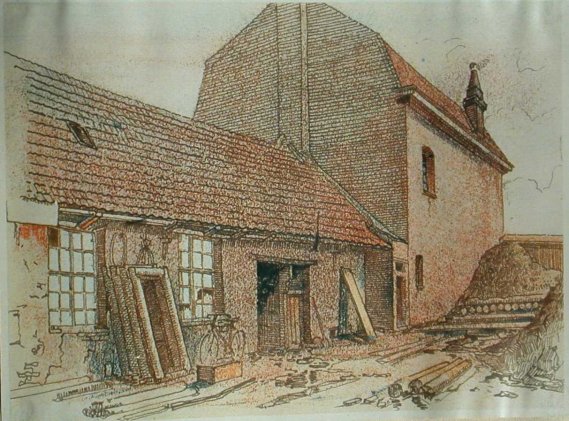
Fromelles Watercolor, 1915, by Hitler
[For Second US Protest over Lusitania Sinking Click here]

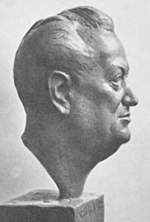


On day 140, Baldur von Schirach's defense calls Fritz Wieshofer to the witness stand and Dr Fritz Sauter, Schirach's counsel, again incurs the Courts impatience:
Dr Fritz Sauter: Mr. President, we have submitted this document because it is to prove, or at least indicate, that the Defendant von Schirach, together with this Dr. Colin Ross, continuously worked to maintain peace, and later on to limit the war. Therefore it is submitted only to show that the Defendant von Schirach worked for peace.
The President: The document does not mention Von Schirach or in any way indicate that he had worked for peace.
Dr Fritz Sauter: But it says in the document, "We have done everything in our power to prevent this war, or . . . "
The President: Dr. Sauter, the word "We" must mean the people who "leave this world by our own will," namely Dr. Colin Ross and his wife. It does not refer to von Schirach.
Dr Fritz Sauter: We do not know that. Why should it not also refer to von Schirach?
The President: Well, because there is such a thing as grammar. The document begins "We leave this world by our own will."
Dr Fritz Sauter: As to that, Mr. President, may I remind you that this name, Dr. Colin Ross, has been mentioned very often during this trial in connection with the peace efforts of the Defendant von Schirach, and that Dr. Colin Ross, together with his wife, was living in Schirach's apartment when they committed suicide.
The President: Well, very well, Dr. Sauter, if you wish to draw our attention to it, you may do so. [For the full text of today's proceedings, Click here.]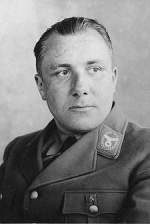

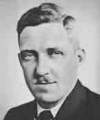
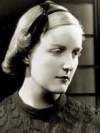
levi.bookin@gmail.com







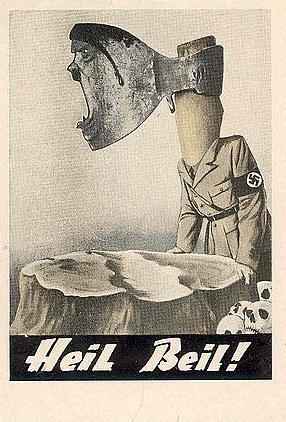
Fair Use Notice: This site may contain copyrighted material the use of which has not always been specifically authorized by the copyright owner. We are making such material available in our efforts to advance understanding of historical, political, human rights, economic, democracy, scientific, environmental, and social justice issues, etc. We believe this constitutes a "fair use" of any such copyrighted material as provided for in section 107 of the US Copyright Law. In accordance with Title 17 U.S.C. Section 107, the material on this site is distributed without profit to those who have expressed a prior interest in receiving the included information for research and educational purposes. If you wish to use copyrighted material from this site for purposes of your own that go beyond 'fair use', you must obtain permission from the copyright owner.
Please Note: The list-owner and moderators of 3rdReichStudies are not responsible for, and do not necessarily approve of, the random ads placed on our pages by our web server. They are, unfortunately, the price one pays for a 'free' website.